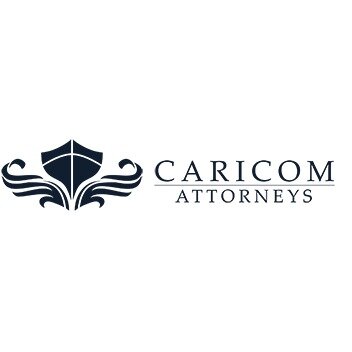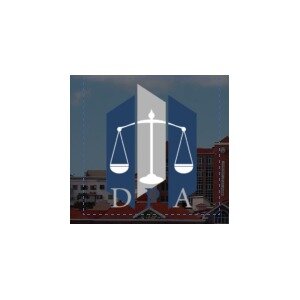Best Renewable & Alternative Energy Lawyers in St. George's
Share your needs with us, get contacted by law firms.
Free. Takes 2 min.
List of the best lawyers in St. George's, Grenada
About Renewable & Alternative Energy Law in St. George's, Grenada
St. George's, Grenada, is increasingly recognizing the importance of renewable and alternative energy. The island's government is committed to reducing fossil fuel dependence, improving energy security, and promoting sustainable development. Thus, there is growing investment in sources like solar, wind, geothermal, and marine energy. Renewable & Alternative Energy Law in St. George's covers a range of legal matters including project development, regulatory compliance, land use, incentives, permits, environmental regulations, and consumer protections. These laws govern how individuals and businesses can generate, sell, or consume renewable energy in a way that protects community interests and the environment.
Why You May Need a Lawyer
Navigating renewable and alternative energy projects often involves complex legal processes. Here are common situations where seeking legal advice is crucial in St. George's, Grenada:
- Applying for permits or licenses to build or operate renewable energy systems
- Understanding government incentives, grants, and tax breaks for renewable energy investments
- Negotiating contracts for the purchase or sale of renewable energy (Power Purchase Agreements)
- Dealing with land use issues, including leasing or purchasing property for energy projects
- Ensuring compliance with local environmental and energy regulations
- Resolving disputes between project stakeholders, including suppliers, installers, and utility companies
- Protecting intellectual property related to renewable energy technologies
- Representing interests in government hearings or community consultations
Local Laws Overview
Renewable and alternative energy activities in St. George's, Grenada, are subject to several key local laws and regulations. Some major legal aspects include:
- Regulation of Generation: The Public Utilities Regulatory Commission (PURC) oversees energy sector regulation, including licensing for electricity generation from renewable sources.
- Renewable Energy Policy: Grenada has established national renewable energy targets as part of its commitment to sustainable development. The government encourages investment through its National Energy Policy and supporting frameworks.
- Permitting Requirements: Projects may need environmental impact assessments, zoning approval, and various construction and operational permits from local authorities.
- Grid Connection: Rules exist concerning grid interconnection for individuals and companies wishing to supply renewable energy to the national power grid.
- Incentives and Support: There are incentives such as duty exemptions on renewable energy equipment and possible access to grants or loans for qualifying projects.
- Environmental Protections: Laws ensure that renewable energy projects do not negatively impact protected areas, wildlife, or coastal/marine environments.
Frequently Asked Questions
What types of renewable energy are most common in St. George's, Grenada?
Solar energy is the most widely used renewable source, but there is also growing interest in wind, geothermal, and marine energy due to Grenada's unique geography.
Do I need a permit to install solar panels on my home?
Yes, residential solar installations typically require approval from the relevant municipal authority and compliance with safety and grid interconnection standards.
Are there tax incentives for using renewable energy?
The government provides import duty waivers and other tax incentives for approved renewable energy systems and equipment to promote adoption.
Can businesses sell renewable energy back to the grid?
Businesses may be eligible to sell surplus renewable energy to the national grid, but this requires a power purchase agreement and adherence to regulatory standards.
What environmental regulations affect renewable energy projects?
Projects may require an environmental impact assessment and must comply with regulations aimed at protecting Grenada's diverse ecosystems.
Who regulates the renewable energy sector in Grenada?
The Public Utilities Regulatory Commission (PURC) is the primary regulatory body overseeing licensing, safety, and technical standards for the energy sector.
Are there grants available for renewable energy projects?
Some government and international program grants or low-interest loans may be available, particularly for community or innovative projects.
How can a lawyer help with grid interconnection?
A lawyer can help you understand interconnection requirements, negotiate terms with utility companies, and ensure you meet regulatory and technical standards.
What should I consider when leasing land for a renewable energy project?
You should verify land ownership, check zoning laws, secure the proper land use permits, and ensure water or environmental restrictions are addressed.
What are the risks of not following local laws for renewable energy?
Failure to comply with laws may result in fines, project delays, or closure and could cause irreversible environmental harm or legal liabilities.
Additional Resources
If you need more information or support, consider these resources in St. George's, Grenada:
- Public Utilities Regulatory Commission (PURC) - Regulatory authority for the energy sector
- Ministry of Energy - Provides policy direction and information on government incentives
- Grenada Solid Waste Management Authority - Deals with environmental aspects of infrastructure projects
- Grenada Investment Development Corporation (GIDC) - Offers assistance to investors in renewable energy
- Local law firms experienced in energy and environmental law
- Regional organizations, such as the Caribbean Centre for Renewable Energy and Energy Efficiency, for regional policy developments and technical guidance
Next Steps
If you are considering a renewable or alternative energy project in St. George's, Grenada, or have encountered a legal issue connected to renewable energy, start by gathering all your relevant documents and project details. Next, consult with a qualified local attorney who specializes in energy law. They can guide you through permitting, compliance, contracts, and incentives, ensuring your project runs smoothly and legally. You may also wish to contact local government agencies or development authorities to better understand available resources and requirements. Take the time to review your options and do not hesitate to ask questions until you feel confident in your next steps.
Lawzana helps you find the best lawyers and law firms in St. George's through a curated and pre-screened list of qualified legal professionals. Our platform offers rankings and detailed profiles of attorneys and law firms, allowing you to compare based on practice areas, including Renewable & Alternative Energy, experience, and client feedback.
Each profile includes a description of the firm's areas of practice, client reviews, team members and partners, year of establishment, spoken languages, office locations, contact information, social media presence, and any published articles or resources. Most firms on our platform speak English and are experienced in both local and international legal matters.
Get a quote from top-rated law firms in St. George's, Grenada — quickly, securely, and without unnecessary hassle.
Disclaimer:
The information provided on this page is for general informational purposes only and does not constitute legal advice. While we strive to ensure the accuracy and relevance of the content, legal information may change over time, and interpretations of the law can vary. You should always consult with a qualified legal professional for advice specific to your situation.
We disclaim all liability for actions taken or not taken based on the content of this page. If you believe any information is incorrect or outdated, please contact us, and we will review and update it where appropriate.












